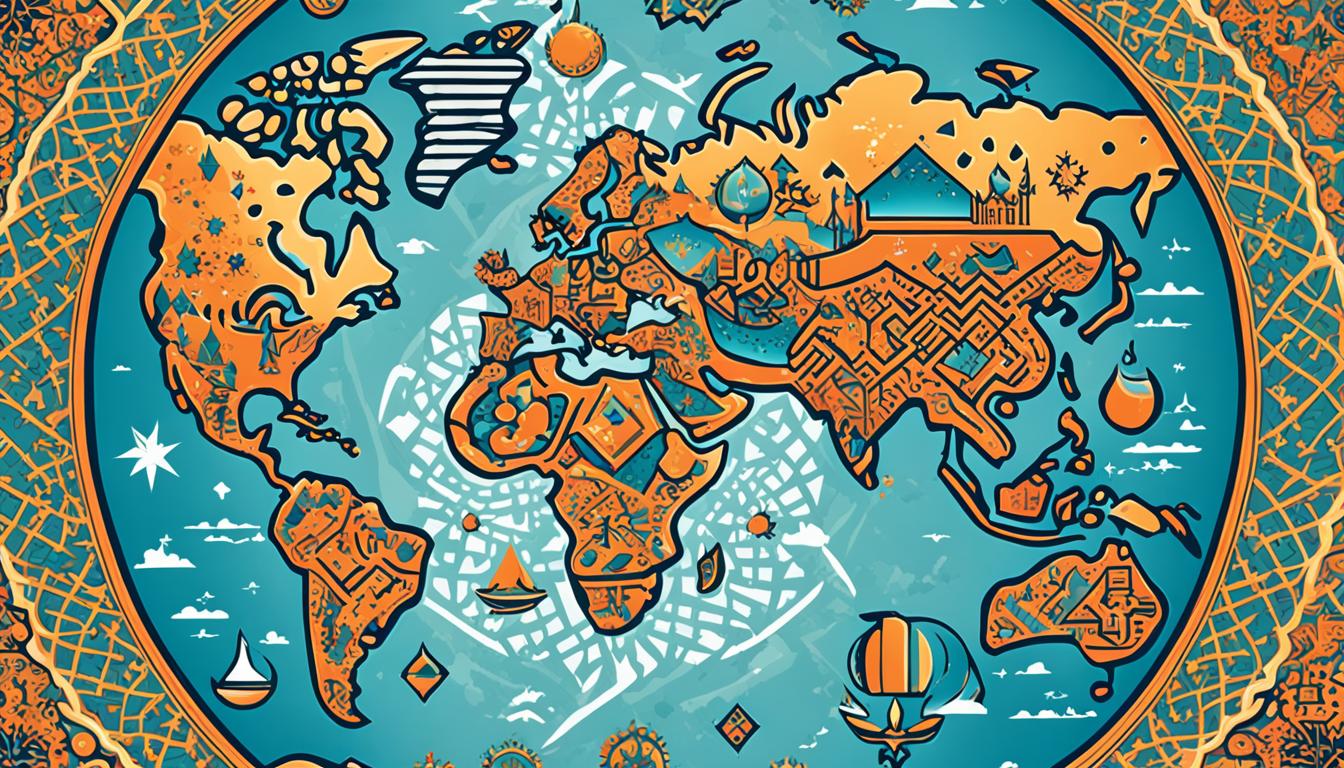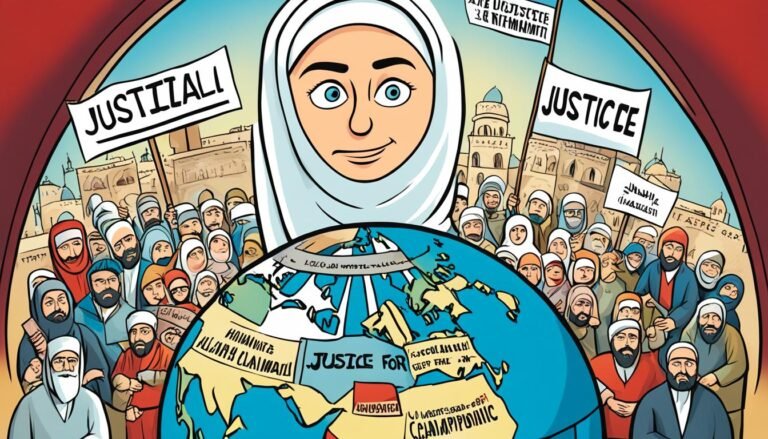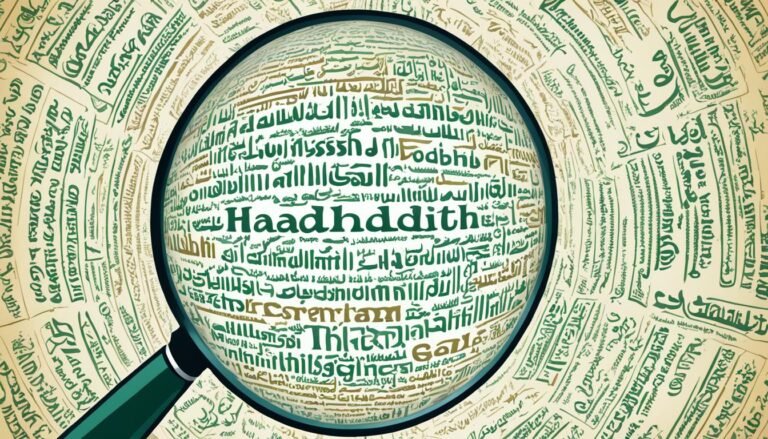The Influence of Islamic Thought on Global Politics
In today’s world, we often ask: How does Islamic thought affect politics in different countries? What does this mean for how the world is governed? In places like South Asia, 84% of Muslims want sharia law to be the main law. This shows how Islamic beliefs reach far beyond just religion.
This article will look into how Islamic thought shapes global politics. We’ll see where these beliefs come from and how they affect how countries make laws and policies.
Key Takeaways
- Islamic political philosophy is key in shaping how many countries are governed.
- Most Muslims worldwide support the use of sharia law.
- Religious beliefs deeply affect the way Islamic states are governed.
- How sharia law is accepted and used varies greatly across regions.
- Views on political Islam differ a lot between countries like Saudi Arabia and Iran.
- Islam also acts as a soft power, affecting how countries deal with others and their global strategies.
Introduction to Islamic Thought and Political Philosophy
Islamic thought covers a wide range of topics, from spiritual beliefs to moral values and social justice. Over the centuries, Islamic political philosophy has grown to tackle key issues like governance, law, and ethics. At its core, it’s about how power and justice are shared among people and groups.
Sharia law is a key part of this philosophy. It’s a set of rules for right and wrong in both ethics and law. These rules help guide people’s actions in Islamic societies, blending moral and legal aspects of leadership.
There’s a lot of ongoing debate about Islamic thought and its role in governance. Scholars and experts are always exploring its implications.
Islamic thought is deeply connected to history, culture, and society. It affects both local and global views. Works like “Islamic Thought: An Introduction” by Abdullah Saeed cover topics like legal, theological, and political thought. By looking at its history and current uses, we can see how it helps solve today’s problems.
Looking at Islamic thought and political philosophy shows how important they are for governing in Islamic societies. The discussions around these ideas will keep happening. They’re key to understanding Islamic politics past, present, and future.
Historical Perspectives: Islam’s Role in Politics
Islam has had a big impact on politics for a long time. It started with the early Islamic community. The creation of Islamic states and caliphates mixed religious and political power. This mix shaped how Islam affects governance, law, and administration in different places.
In the Umayyad and Abbasid times, big changes happened in Islamic politics. These periods show how Islamic beliefs changed political systems. They highlight the link between religious ideas and politics, which changed Islam’s political history.
“Political Theology and Islam” by Paul L. Heck looks into these ideas. It’s a 530-page book that talks about Islamic societies’ concept of power. Paul L. Heck, a professor at Georgetown University, talks about the struggle for a moral order. He shows how rulers and faithful communities interact.
Scholars praise Heck’s work for its deep look at history, covering the Umayyads, Abbasids, and Seljuqs. These insights help us understand Islam’s role in governance over time. The analysis shows that ethics, justice, and compassion are key to understanding Islamic societies.
Learning about these historical views helps us see Islam’s impact on politics better. It also shows how religions can shape political systems worldwide.
The Influence of Islamic Thought on Global Politics
Looking into how Islamic thought affects global politics shows us a mix of ideas and social effects. Islamic political views focus on helping the community and fighting for justice. This is different from Western views that often put individual rights first. We’ll explore these ideas and how they compare with Western ones.
Overview of Islamic Political Ideologies
Islamic political views cover many opinions, including the idea of Islamic democracy. This idea supports active participation and ethical leadership based on the Quran and Hadith. In Pakistan, 82% of people believe their laws should follow Quranic teachings closely. Tunisia shows that over eight-in-ten people think Islam greatly affects their politics, showing how important Islamic thought is in governance.
Comparative Analysis with Western Political Thought
When we compare with Western views, the main differences stand out. Western ideas often focus on individual freedom, while Islamic views stress on community and fairness. This is clear in Egypt, where more people now see Islam as key in politics, from 47% in 2011 to 66% now. In Tunisia and Pakistan, most people see Islam’s role in politics as good. But, in Lebanon, 63% of young people think laws shouldn’t be based on the Quran, showing a secular trend among the youth. This shows how Islamic thought is evolving in today’s global politics.
| Country | Support for Quranic Influence (%) | Support for Secular Laws (%) |
|---|---|---|
| Pakistan | 82 | N/A |
| Egypt | 66 | 54 (18-29 year-olds) |
| Tunisia | 80+ | N/A |
| Lebanon (Christians) | 75 | 63 (youth) |
| Jordan | 37 | 63 (negative perception) |
Islamic Governance Theories and Their Applications
Islamic governance theories help us understand how Islamic principles shape political systems and societies. At the heart of these theories is Sharia law. It’s the moral and legal base of governance in Islamic states. Different views on Sharia law lead to debates about its use and effects on human rights and secular governance.
Sharia Law: Principles and Controversies
Sharia law is based on the Quran and hadith. Scholars like Bukhari and Muslim gathered these rules and ethics. Supporters believe Sharia law brings justice and keeps society in order.
Critics worry it might limit personal freedoms and human rights, especially for women and religious minorities. This debate shows the challenges in applying ancient laws in today’s world.
Islamic Models of Governance: Historical Context
The history of Islamic governance shows a mix of political systems and models. The Umayyad dynasty ruled from 661 to 750 and built a vast administration that blended different cultures. Then, the Abbasid dynasty, from 750 to 1258, is seen as a golden age of Islamic culture, with big leaps in art, science, and trade.
This history shows how Islamic governance theories have changed over time. They reflect changes in society’s needs and challenges.
Islamic Political Movements and Their Impact
Over the last century, Islamic political movements have changed a lot. They often see Islam as a way to solve all political and social problems. This idea has different effects in different places. After the Arab Spring, these movements have become more powerful in politics.
Now, as people face big challenges, Islamic political groups are getting more important.
The Rise of Political Islam in Various Regions
The start of Islamic political movements began after the Ottoman Empire fell apart from 1908 to 1922. This event led to a big push against Western rule in the 19th and 20th centuries. People started to want more political Islam and Islamic democracy in places with big disagreements.
Events like the Six-Day War and the fall of the Soviet Union helped these movements grow. They believe in the power of sharia (Islamic law) and shura (consultation) for governing.
Case Studies: The Muslim Brotherhood and its Global Influence
The Muslim Brotherhood is a key group in the talk about Islamic political movements. After the Arab Spring, it made a big impact in Egypt with its Freedom and Justice Party. Ennahda in Tunisia also got a lot of votes.
Here’s a table that shows how well these groups did in elections:
| Movement | Country | Year of Electoral Success | Significant Outcomes |
|---|---|---|---|
| Muslim Brotherhood | Egypt | 2011 | Plurality in national elections |
| Ennahda | Tunisia | 2011 | Plurality in national elections |
| Ennahda | Tunisia | 2019 | Largest party in parliament |
| Islamic Salvation Front (FIS) | Algeria | 1990s | Defeated over 50 parties |
These groups face many problems, like military takeovers and big changes in politics. For example, a military coup in Algeria in the 1990s started a long civil war. But, many people in Muslim-majority countries still support these political parties a lot. Surveys show most people think these parties are as good or better than secular ones.
Impact of Islamic Principles on International Relations
Islamic principles deeply affect how countries interact with each other. They bring a special way of dealing with others. This approach focuses on working together, being fair, and acting with integrity. It makes building relationships across different cultures and politics easier.
Islamic Perspectives on Diplomacy
At the heart of Islamic diplomacy is respect and talking things through. It’s all about seeing that we’re all human. This way, countries can work together for peace and cooperation. Key parts of Islamic diplomacy are:
- Ethical Engagement: It’s about being morally right and fair.
- Dialogue of Civilizations: It’s about understanding different cultures for peace.
- Human Dignity: It’s about protecting and valuing everyone’s worth.
Interaction between Islamic States and Non-Islamic States
Dealing with Islamic and non-Islamic countries can be tricky because of their past. Islamic ways of dealing with others are open but respect different views. They show the importance of working together to solve big problems. Here’s a table that shows how Islamic and Western ways of diplomacy differ:
| Aspect | Islamic Diplomacy | Western Diplomacy |
|---|---|---|
| Base of Engagement | Mutual respect and ethical considerations | Realist and material interests |
| Focus of Negotiations | Comprehensive security and justice | Power dynamics and strategic interests |
| Vision of Cooperation | Dialogue and understanding | Competition and advantage |
| Historical Context | Deeply rooted in cultural heritage | Dominantly shaped by modern state interactions |
Dealing with Islamic and non-Islamic countries is complex because of their different interests and pasts. Islamic diplomacy offers a unique way to build lasting peace and understanding worldwide.
Global Implications of Islamic Ideology
Islamic ideology has a big impact on policy in many countries. About sixty nations follow Islam, and they are home to around 1.2 billion Muslims. This faith guides both group and individual actions with a detailed legal and moral framework.
Impact on Policy Making in Islamic Countries
In Islamic countries, policies often mirror their cultural and religious values. Governments might make laws based on Shari`a principles. But, there are debates about if and how these laws should be enforced by the state.
Political theory says a neutral state is key to avoid abuse of power and corruption.
Here are some key points about Islamic policy making:
| Factor | Implications |
|---|---|
| Religious Beliefs | Influence decision-making processes and citizen engagement in governance. |
| Separation of Islam and State | Desirable for stability; a lack of separation can lead to unrest and limited opportunities for citizens. |
| Role of Constitutionalism | Essential for balancing competing claims and upholding human rights. |
| Political Participation | Encouraging open operations of Islamist parties can reduce political violence. |
The Role of International Organizations
International organizations play a big part when dealing with Islamic states. They help start dialogues and work together, understanding the unique political scenes shaped by Islamic beliefs. By building partnerships, these organizations aim to help with policy making, address human rights, and boost economic growth.
Understanding the global effects of Islamic ideology helps us see how nations connected by Islamic thought are linked.
Case Studies of Islamic Political Influence in Specific Countries
Countries with a big Islamic influence show a mix of old traditions and new governance. Egypt and Turkey are great examples. They show how Islamic political influence affects policy and society in different ways.
Egypt: Political Shifts Post-Arab Spring
After the Arab Spring, Egypt saw big changes in politics. The Muslim Brotherhood became a key player in government talks. They wanted to mix religious beliefs with modern politics, showing how Islamic ideas can fit into today’s world.
Even though they faced challenges and a military takeover, the Brotherhood’s impact on Egypt’s politics is still strong after the Arab Spring.
Turkey: Balancing Secularism and Islamism
Turkey is an interesting example of balancing secular and Islamic politics. It was built on secular ideas but has been moving towards accepting Islamic values more. The government has started to include Islamic ideas in public life, which has caused tension.
This shows the struggle to mix secular and Islamic beliefs in Turkey. It’s a good example of how Islamic influence can work in a country that was once more secular.
| Country | Islamic Political Influence | Current Governance Model |
|---|---|---|
| Egypt | Rise of Muslim Brotherhood | Formerly Democratic, Currently Authoritarian |
| Turkey | Embrace of Islamic Principles | Secular State with Growing Islamic Influence |
Challenges Faced by Islamic Governance Systems
Islamic governance systems face many challenges that affect their success. One big issue is the gap in wealth and resources within communities. This gap makes some people unhappy with their situation.
Another challenge is the division within the Islamic world. This division leads to conflicts that make it hard to solve big problems together. Sectarian tensions, like the Sunni-Shia divide, make these conflicts worse. This has led to problems in places like Iraq and Syria.
Trying to agree on how to apply Islamic law is another big problem. Different views on this lead to debates about who has the right to lead. This makes finding a way to govern that everyone agrees with very hard.
Dealing with the modern world is also tough for Islamic leaders. They have to balance old values with new ideas. This is hard because young people have different views than older ones.
The media also plays a big role in these challenges. It often shows a wrong picture of Islamic cultures, leading to wrong ideas about Muslims. This can make people discriminate against Muslims and make them feel they can’t be themselves.
| Challenge | Description |
|---|---|
| Socio-Economic Disparities | Significant gaps in wealth and access to resources among different social groups. |
| Political Fragmentation | Internal conflicts that hinder cohesive governance efforts. |
| Sectarian Tensions | Conflicts arising from Sunni-Shia divisions compromising national unity. |
| Interpretation of Islamic Law | Diverse views on Islamic jurisprudence creating legitimacy disputes. |
| Modernity vs. Tradition | The challenge of balancing contemporary values with traditional practices. |
| Media Misrepresentation | Negative portrayal of Muslims leading to stereotyping and cultural erosion. |
Conclusion
Islamic thought deeply affects global politics in many ways. It covers themes like governance and how countries interact with each other. The rise of political Islam has led to a lot of debate. People wonder if it fits with democratic values.
In the past ten years, talks about “Islam and democracy” have given us new insights. They show how religious movements see democracy differently, causing tensions in countries and at the world level. Events like the Islamic Salvation Front’s win in Algeria and the military’s move in Turkey show how tricky it is to accept democracy in Islamic societies.
The changing nature of Islamic political ideas brings both challenges and chances for different forms of government. Looking at Islamic thought’s influence, we see a mix of old and new ideas. This mix shows why talking things through is key in today’s complex world. As Islamic ideas keep shaping politics, they will play a big part in how countries work together in the future.
Source Links
- The World’s Muslims: Religion, Politics and Society
- Islam as statecraft: How governments use religion in foreign policy | Brookings
- The Influence of Religious Institutions on the Domestic and Foreign Policies of the Kingdom of Saudi Arabia — THE INTERNATIONAL AFFAIRS REVIEW
- Islamic Thought: An Introduction
- Islamic Political Thought: An Introduction
- Islam, State and Politics: Separate but Interactive
- Political Theology and Islam
- CR5-1 00
- Islam and Great Power Rivalry: Doom and Humanism in International Relations
- Chapter 3. Role of Islam in Politics
- wbept0542.indd
- EIR-Publications_Caliphates and Islamic Global Politics_Digital_Converted.indd
- Political aspects of Islam
- Islamism at 50 in Politics, Power and War
- Chapter 2: Religion and Politics
- Internationale Politik und Gesellschaft
- The political influence of an interest group: A comparative study on the Muslim minority in the United States and Britain – Humanities and Social Sciences Communications
- The asphyxiated politics of the Muslim world
- Challenges Facing Islam, Islamic Civilization, and Muslim Countries
- Islam: The Democracy Dilemma
- Rethinking Political Islam | Brookings
- Untitled
- Islamic Political Thought: Reviving a Rationalist Tradition







